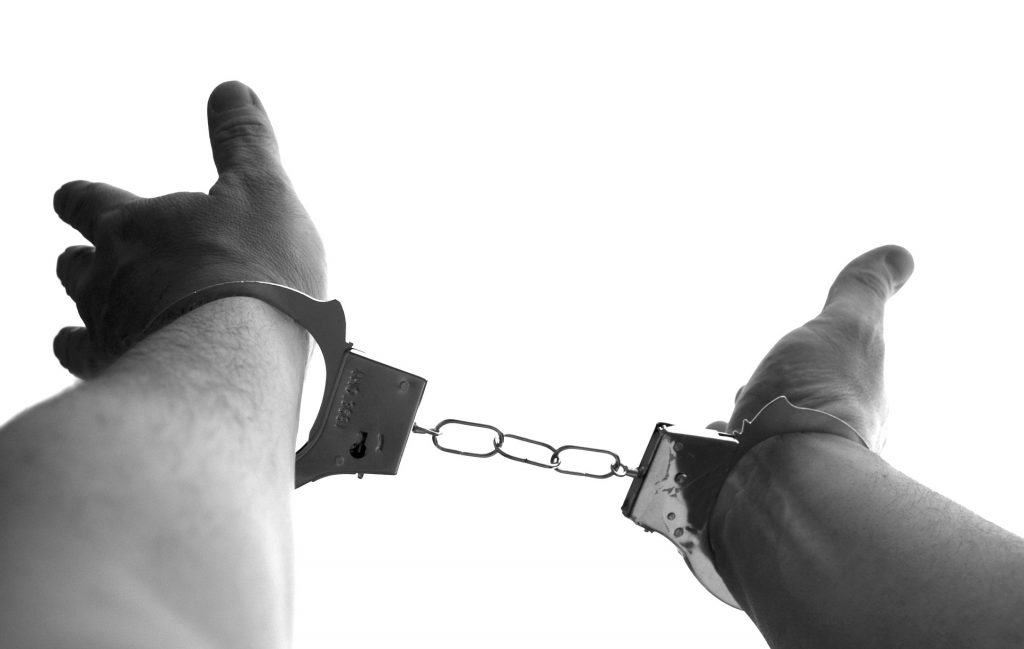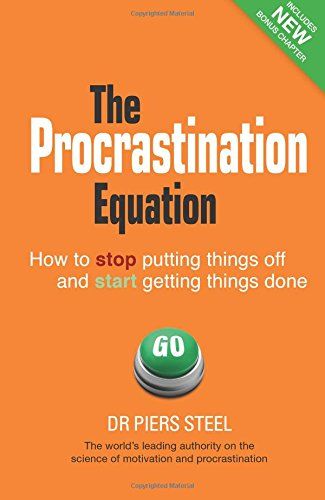Are you struggling to manage your time effectively as a student because you can never take control of your time? If so, acting deliberately and stopping impulsiveness from hijacking your life is the most important thing you can do.
No matter who you are, it is imperative that you take control of your time in order to live a purposeful life!
If you want to achieve your goals—excel in those exams—then effective time management is your friend: it is, after all, incredibly important for students who want to live a successful, meaningful life.
However, managing your time is not a passive process; rather, it is the act of taking deliberate control of your life. Easier said than done.
So, in this article, I will share how impulsiveness is robbing your time like the silent assassin it is. What’s more, you’ll learn the techniques I’ve used to stop impulsiveness and regain control of my time.
Stop impulsively buying, too: Spend Money Wisely: 3 Tips You Need to Know Before Buying

insert_linkWhat Is Impulsiveness and Why Is It Bad?
Impulsiveness: killer of productivity and everything else that is good.
Contrasting the concept of time management, impulsiveness is the quality of giving in to short-term gratification rather than pursuing long-term advantages.
Moreover, being impulsive is when you say, “Oh, look! There are some boxes that need cleaning out, so I better do that before it’s too late!” But “too late” is merely an illusion.
Or, perhaps more relatable to you:
“What’s that, Fred? It seems like I’ve heard a nice little "ping", meaning someone has messaged me on Discord Inc!”
Now that bellows procrastination like nothing else.
And there’s a good reason for that: impulsiveness is a factor in procrastination. That is to say, when you give in to your impulses, you are naturally straying off the ideal plan. Also, impulses may come from any of the following examples:
- Random ideas that pop into your head
- Things that you realise you “need” to do
- Other people, thus prompting distracting social interaction
- Notifications on your phone or another device
- Lack of motivation (a problem caused by inadequate willpower)
Allow me to illustrate: imagine allowing your impulsiveness to take control of your time and activities. What would you do?
Spend all day playing video games? Waste away your time on social media? On the other hand, you might just end up binging on your favourite cookies.
Therefore, you cannot trust your impulses—under any circumstance.
Conversely, as soon as you’ve suppressed your impulses, you’ve taken control of your time.
insert_linkDo Things on Your Own Terms and Live a Meaningful Life
What is success? Being controlled like a puppet? Not at all. So, why is it that more people don’t take control of how they spend their time?
For instance, it is not the one following the rules who has the advantage. But, rather, it is the one who makes the rules who truly controls the situation.
Similarly, if you want to become super-productive, learn to say “no” to other people; the ones who seek time from you rarely ever deserve it.
After all, how valuable is your time? I believe time is everyone’s most powerful asset, albeit this is not recognised by the larger population.
So, if you get a message requesting some details, postpone it—oh, and certainly don’t be apologetic.

Do not let yourself be a slave to the will of others! Be strong! Fight for your time!
Trust me, only those who are willing to make these sacrifices will have the capacity to take control of their time.
Impulsiveness is the state of being a slave to your circumstances, whereas doing things on your own terms ensures sustainable time management—that you get all the important work done without fail.
In the next section, I’ll give you practical advice that you can use to—at last—gain control of your time!
Improve your ability to resist: 9 Self-Control and Discipline Strategies: Break Free Now!
insert_linkHow to Take Control of Your Time and Battle Impulsiveness
insert_linkTrack and become aware of your time
You can’t stop what you can’t see, so don’t even try.
In other words, it is ridiculous to attempt to manage your time when you don’t even know how you’re spending it. Nonetheless, it is very possible to develop this awareness.
“But wait!” you exclaim, “I am always aware of how I spend my time—after all, it is not like I am sleeping all day.”
Though, are you really aware of how you spend your time?
Answer me this: looking back on yesterday, where did your time go, to an accuracy of half-an-hour? Furthermore, how productive were you being?
If you can’t answer that, then you should definitely conduct an audit on your use of time—an undoubtedly finite resource.
To clarify, the basic idea is to see where you’re wasting time and being less efficient. Moreover, practices such as mindfulness meditation can improve your awareness of your impulses, thus allowing you to fight them.
In addition to that, here are some tools to help you track your time like you measure calories:
“What gets measured gets improved”
Peter Drucker, author of The Effective Executive
insert_linkPlan Your Time and Schedule Everything

Secondly, an essential piece of doing things on your own terms is planning your time deliberately.
Similar to a quality script, determining your activities in advance gives you the perfect way to escape the impulsiveness of the present. Consequently, when you don’t know what you should be doing, simply refer to your plan; you’ll never again need to look to your impulses.
Besides, a good plan creates clarity, keeps you on track, and mitigates procrastination.
Although, a plan can be rather challenging to stick to. For this reason, you might want to start small with a simple checklist and continue to practice plan-obedience.
Also, helping me control my time massively, dividing time into time blocks further reduces impulsiveness. This is because each block may have its own set of rules, for instance:
- No work-related activities (relax time)
- No email or other messaging platforms (work hours)
- No social media (all the time)
No questions. Indisputable clarity. Less impulsiveness.
Structure your day productively: How to Organise Your Time at Home (with Compartmentalisation)
insert_linkCapture and Delay Things for a Later Date
Thirdly, the capture habit not only keeps your mind free and focused, but it also weakens the inclination to give in to your impulses.
As I alluded to earlier, ideas and distractions that pop up throughout the day have the frightening potential to set you sailing off track. So, the productive person packs them up into mundane boxes before shipping them off to “later land”.
In other words, merely schedule these distractions—things to do, act on or think about etc—for later. As a result, you’ll find the temptation to stray away from work, especially study work, diminishes dramatically: your weaker mind rests assured that, eventually, that side-task will get managed.
All it takes it noting down spontaneous thoughts and ideas somewhere safe.
Furthermore, perhaps you will find—once free of impulsiveness—that you don’t actually want to read that article or do that research; after all, impulsive thoughts often excessively exaggerate the urgency as well as the importance of themselves.
However, by doing things on your own terms, you gain a wider perspective with regard to the value of tasks and your limited time.
Learn more about the capture habit: How to Stop Unwanted Thoughts While Studying (For Better Focus)
insert_linkCommunications: Your Friends Want to Destroy You
Of course, notifications are the destroyers of concentrated work. What’s more, when mixed with the novelty of social interactions, they become lethal.
Tell me that you’ve never experienced the overwhelming temptation to respond to an electronic message.
“Hey, Fred, check out this epic mémé!”
“What was Dr Freedman’s homework for tomorrow, again?”
“Do you like eating peanuts?”
All of these can be massively distracting since you develop a sudden impulse to respond. Worsened by the fact that it’s probably more entertaining than studying, you can’t resist.

But you can resist!
Introducing my communications queuing system, whereby you interact with people on your own terms. Here are the key principles:
- Stop communicating when continuing to do so defies your plan
- Dedicate a time of the day for processing email and other messages
- If you have something to say, take note of it in a “queue” specifically for that person
- While good social skills are important, don’t be apologetic
Now, rather than others controlling you, you have the power over the conversation. You are controlling your time.
insert_linkEliminate the Causes of Impulsiveness Altogether
Whilst scheduling responses for later is an effective time management strategy, it’s not efficient to be doing that all day. Why not catch up on your messages all at once? It’s not like they’re going to go away.
This brings us smoothly to my next tip: turn off all notifications. Just do it!
Trust me, as soon as you do this, your life will be blessed with significantly more freedom. Peace.
Above all, unless you’re going to act on it, you don’t need to know about that message the instant it arrives. Because it’s only perceived to be urgent, you can safely wait until your dedicated time of day to process the day’s events.
Also, I’ll have to go full-on Cal Newport here: say goodbye to social media!
Honestly, you don’t need to keep up to date with the latest news and events—that’s filthy doctrine imposed by the weakness of society. Has your usage of social media and news sites had any real benefit to your life?
What would your life be like now if you hadn’t used social media—but did something perhaps more worthwhile? I suspect your life would, in fact, be better.
Be deliberate about your time: How to Save Your Time: The Most Powerful Planning Routine
insert_linkConclusion
These are seven ways to overcome your impulsiveness and take control of your time:
- Track how you spend your time
- Plan and schedule everything
- Separate your day into discrete time blocks
- Take notes of things to do and ideas that pop up throughout the day
- Dedicate time for reading email and communicating on social media and messaging platforms
- Keep a to-do list to control electronic communication with others
- Interact with people on your own terms
- Turn off all notifications
- Stop using social media without purpose
- Train your willpower
Indeed, I thought I’ll just throw in that last one as maintaining good health is vital for living a meaningful life. So, get meditating!
In summary, we’ve discussed how eliminating impulsiveness is the way to take control of your time. That is how you will be able to manage your time effectively and stick to plans.
Moreover, it all revolves around doing things on your own terms—the opposite of impulsiveness (being a slave to your surroundings).
Hopefully, with these tips, you can begin to tame your impulses hence plough forth productively!
insert_linkThis Week’s Book Recommendation
Impulsiveness has a strong link to procrastination, since it discourages hard work, favouring short-term reward. However, it isn’t the sole variable in the procrastination equation:

The Procrastination Equation: How to Stop Putting Things Off and Start Getting Stuff Done
Let me know if any of today’s tips help, and I’ll love to hear you answer this question in the comments:
Do you struggle with impulsiveness?


